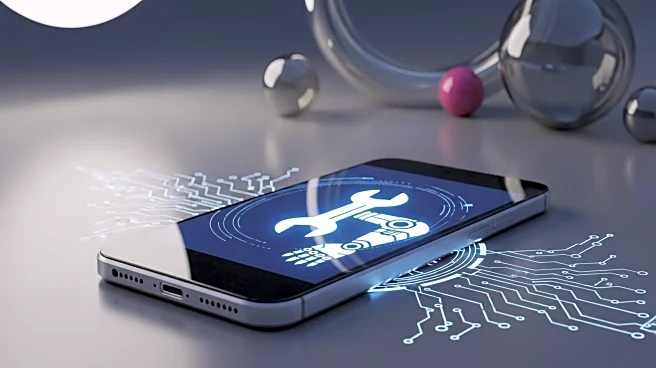What's Happening?
A dedicated team has successfully downloaded and archived a fully playable version of the canceled mobile game, Ratchet & Clank: Clone Home. Originally set to debut in 2006 for Java phones, the game was quietly canceled just before its release. Despite its cancellation, rumors persisted about its existence, elevating it to a mythical status among fans. The search for the game was initiated by YouTuber The Golden Bolt in 2019, who received information from one of the original developers that the game was finished and may have been downloaded onto a few mobile devices. College students 'Emily' and 'Super Gamer Omega Clank' played a crucial role in the search, eventually finding the game on a Sony Ericsson W880i. After overcoming encryption challenges, the team managed to extract and archive the game, making it available for download.
Why It's Important?
The recovery of Ratchet & Clank: Clone Home is significant for game preservationists and fans of the franchise. It highlights the dedication of the gaming community to preserve lost titles and the cultural importance of video game history. The game's recovery also provides insight into the development practices of mobile games in the mid-2000s and the challenges faced by developers during that era. For fans, the availability of Clone Home offers a new experience within the Ratchet & Clank universe, adding to the series' rich history and expanding its canon. The game's unique mechanics and plot contribute to the diversity of the franchise, offering fans a chance to explore a previously inaccessible part of the series.
What's Next?
The successful recovery of Clone Home may inspire further efforts to locate and preserve other lost or canceled games, particularly those from the early mobile gaming era. It could also lead to increased interest in the Ratchet & Clank franchise, potentially influencing future developments or releases. The gaming community may continue to explore the legal and technical challenges associated with game preservation, advocating for more accessible archiving methods and collaboration with developers. Additionally, the story of Clone Home's recovery might encourage other developers to revisit and potentially release unfinished or canceled projects, enriching the gaming landscape with previously unseen content.
Beyond the Headlines
The recovery of Clone Home raises questions about the legal and ethical dimensions of game preservation, particularly concerning intellectual property rights and the responsibilities of developers and publishers. It also highlights the cultural significance of video games as artifacts of digital history, emphasizing the need for systematic preservation efforts. The story underscores the collaborative nature of the gaming community, showcasing how collective efforts can overcome technical barriers and achieve remarkable outcomes. Furthermore, it reflects the evolving relationship between fans and developers, where fan-driven initiatives can lead to the rediscovery and celebration of lost content.










